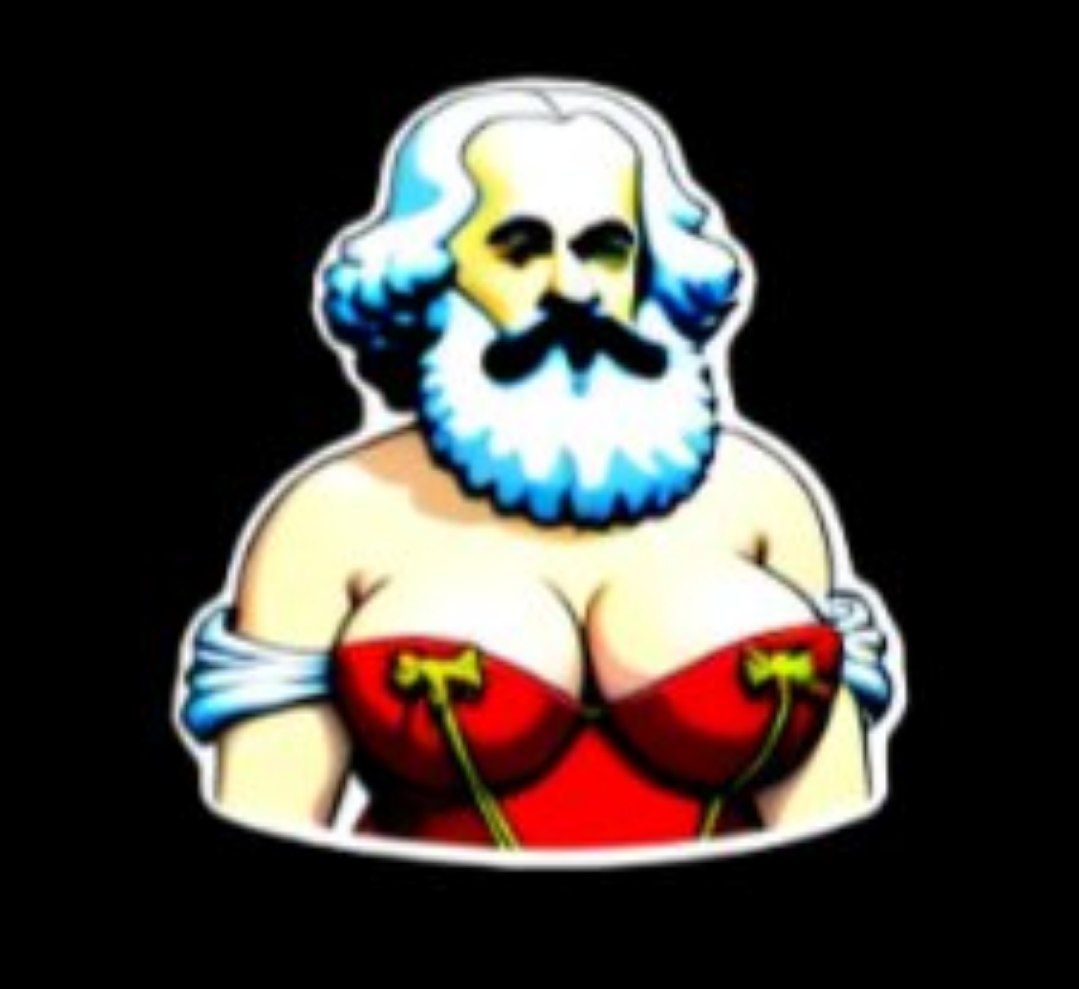- cross-posted to:
- memes@lemmy.ml
- 196@lemmy.blahaj.zone
- risa@startrek.website
- cross-posted to:
- memes@lemmy.ml
- 196@lemmy.blahaj.zone
- risa@startrek.website
cross-posted from: https://lemmy.dbzer0.com/post/7802418
Don’t forget about the Irish unification of 2024!
deleted by creator
This seems like an opportune time to note that Gene Roddenberry was a Marxist who strongly supported China. He almost certainly thought well of Mao.
There were many people who supported Mao in the 60s and 70s, mainly because the terrors of the Cultural Revolution and the failure of the Great Leap Forward were not really known in the West.
China was a closed society. Academics didn’t even travel there. That’s what they mean when they say Nixon “opened up” China in 1972. Prior to that, people only knew what the Chinese government told them about the country.
Huey Newton visited China in 1971, he knew what it was like before 1972. Many other revolutionaries from many other countries also visited China before 1972.
Roddenberry died in 1991, which is well after 1972.
Lol. Ok buddy.
You literally don’t know anything about Mao
Earth and the Federation was communism. Admittedly an idealist version of it, came about because it was voted in by enlightened voters. But even then the Bell Riots showed that it was capitalism that caused conditions to arise in which the oppressed rose up against the failures of capitalism, and finally end it.
Not sure if you specifically meant something about Mao, but at least be aware of this. It’s the most basic theory of communism that capitalism fails, turns into barbarism, and the working class have no option but to revolt to resolve the crisis.
Star trek doesn’t really have a working class though, they achieved Marx’s earlier hypothesised state of the deprecation of manual labor (in the technical sense). Interestingly, most of the philosophy is around how to get to Star Trek, where Star Trek itself is kind of the biggest thought experiment we have for what we would do once we’re there.
Marx later evolved to believe only a revolution would destroy capitalism, and that’s what Mao focused on, the getting there. Through violence.
Mao took that to heart, and succeeded, despite his best efforts, in ultimately setting the stage for a China that’s more capitalist than it’s ever been.
That’s kind of the magic of star trek. Theres a violent past, a billion deaths, and it isn’t a new political system or a different economy that changes everything, it was a newfound hope that things could be better if people were better, and they worked together to make that happen.
I think younger Marx would have loved Star Trek. I’m not sure about older Marx or Mao.
deleted by creator
The Federation is built on principles that run counter to Maoism in important respects like allowing differences of opinion and anti-authoritarianism.
Do you know what the “mass line” concept by Mao is?
you know for a fact that they don’t know dick about shit and are proud of it
Self dunks are so satisfying though!
like allowing differences of opinion and anti-authoritarianism
Getting steamrolled by nazis by inviting them at the table isn’t even a viable starter for a government. The Weimar Republic comes to mind.
The in-setting excuse for why the Federation survived at all, shaky as it was, is that it employs cryptofascists already and gives them unchecked privileges to surveil, harm, and murder on a whim to maintain the status quo: Section 31. You might be a fan.
Do you have any argument to back that up that isn’t GOMMUNISM VUVULZULA GORILLION DEAD?

literally how
The U.S.S. Enterprise NCC-1701 comes across a lost Earth colony during a survey beyond Federation space; a few generations after its establishment, a group of religious zealots take over the operations of the colony, creating a feudal society in which power is held by a select few “holy” families and the vast majority of colonists are little more than slaves. How would Kirk and crew handle this situation?
Removed by mod
Lol really ticked off the tankies. Don’t tell them starfleet hq is… in America!
edit: sorry, I have been informed tankies’ localization actually has star fleet headquartered in… San Fransokyo from Disney’s Big Hero Six?
woah crazy totally not because THERE IS NO STATE YOU MORON
ITS A UNITED WORLD GOVERNMENT
god you libs are the most ignorant animals on the planet
The Star Trek Understander has logged on
the USA is definitely an entity that still exists in star trek
100 percent
have you even watched the show?
Where’s the Office of the President of the Federation?
…And yet, the Enterprise is armed. If power does not come from the ability to effectively use violence, but from some other means, then why would the Federation arm it’s flagship?
Devil’s advocate, but parts of the Trek universe have shown that there are non- or quasi-sentient creatures capable of endangering starships like the Enterprise, in addition to the usual spacefaring hazards like asteroid belts and debris fields, and the potential to encounter, for lack of a better term, space pirates. It makes sense to arm the ship for a number of reasons not necessarily related to the power of coercion via the threat of violence. The Enterprise’s weapons are also frequently outclassed by other ships of similar size designed for combat. It feels more akin to packing bear spray or a noisemaker to scare off wildlife, and the bear spray gets used to drive off a robber.
That said, the threat of violence against a better-armed foe in order to prevent combat is a trope the shows rely on frequently, so you have a point.
Aside from an episode of Strange New Worlds (and possible in Wrath of Khan, depending on your perspective), space pirates aren’t brought up as a risk to the Federation starships, presumably because they usually aren’t. Shields alone should be sufficient for debris and asteroids, since shields appear to stop physical objects as well as certain forms of energy (obvs. not certain bands of light though, or whatever bands their sensors use). Non- and quasi-sentient species shouldn’t pose any risk to a starship at all (aside from possibly omniscient comets, thank you Stanislaw Lem). The weapons on a starship are appropriate to direct against planetary settlements, bases, and other starships.
Fundamentally, I believe Mao was correct on this; the ability to use violence effectively is the lowest common denominator for all power. Everything else is a veneer of civility intended to disguise the violence that is inherent to all forms of coercive rule.
Made me think of: “You claim that political power does not flow from the barrel of a gun, yet virtually all of your fleet (which guarantees your political sovereignty) is armed… Curious” lmao
There is a kind of political power that grows out of the barrel of a gun. That thing must be destroyed.
“The pen is mightier than the sword.”
“But is the pen mightier than photon torpedos?”
then where the hell does it come from
also even if (and it’s a big if) Ireland does unify next year it won’t be through violence
Is that someone I should know?
Captain Jean-Luc Picard of the USS Enterprise.
I know that one what’s the other guy
It’s Mao Zedong. He said, “Political power grows out of the barrel of a gun.” He also led China to mass starvation and terrible poverty, so not someone Picard would subscribe to.
Mao Zedong; his quote was “Political power flows out of the barrel of a gun.”
The quote is not a moral statement or a call to action, but a scientific analysis of Historical Materialism: the Chinese civil war was not fought with ballots or debates, it was fought with guns, on both sides.
Ultimately, the people with the guns hold all political power in society.
That’s wrong in the context of the Chinese civil war though. Mao and the CPC didn’t win because they had more guns or a more powerful army. In fact, the KMT almost wiped them out several times.
According to their own lore, they were more inspirational to the local people, who supported them in return. Mao specifically said “The guerrilla must move amongst the people as a fish swims in the sea.”
You can read it in Mao’s own words: https://www.goodreads.com/book/show/113625.On_Guerrilla_Warfare
But this has been known from the days of Napoleon. A gun doesn’t win a war, the idea wins the war. That’s where ballots and debates come in.
When the CPC was losing to the KMT, they did not have more political power. I feel you’re misunderstanding the quote, which is a colorful way of saying that force is the ultimate basis of all political power—which should be obvious from a cursory examination of international politics.
I think you’re being overly simplistic - sure, ideas and debates have a place in politics. And “political power flows out of the barrel of a gun” doesn’t mean “Whoever has the most guns wins” (though this is the case most of the time) - but it does mean that a group with no guns has no power.
Like the other commenter said, the quote is partially metaphorical - it just means that force is the basis of political power. The people willing and able to apply the most force will almost always win in the end.
Think about in America. If, tomorrow, 75% of Americans were in favor of abolishing the police, would it happen? Maybe, but probably not - because the people with political power, the people with guns and the will to use them (cops, troops, fascists, small business tyrants) support the police.
History is shaped by material conditions; ideas play a part in this, but material interest is the primary driving force.
You just said:
the Chinese civil war was not fought with ballots or debates, it was fought with guns, on both sides.
Ultimately, the people with the guns hold all political power in society.
That directly contradicts Mao’s idea that guerillas are supported by the people they live with. If the people withhold support, guerillas become like a fish out of water. Ordinary people (without guns) actually exercise more power in this scenario.
By focusing on guns instead of class, you are not using a Marxist or Neo-Marxist framework to analyze the civil war. You are using a Realist or Neo-Realist framework, similar to Henry Kissinger. Marxist frameworks believe class is much more important than guns.
The statement “political power flows from the barrel of a gun” is almost anti-Marxist in the way it completely ignores class conflict.
The Red Alert 3 DLC we were denied.

The Rise of Agamus
Every capitalist is a nazist, is what you’re saying?














